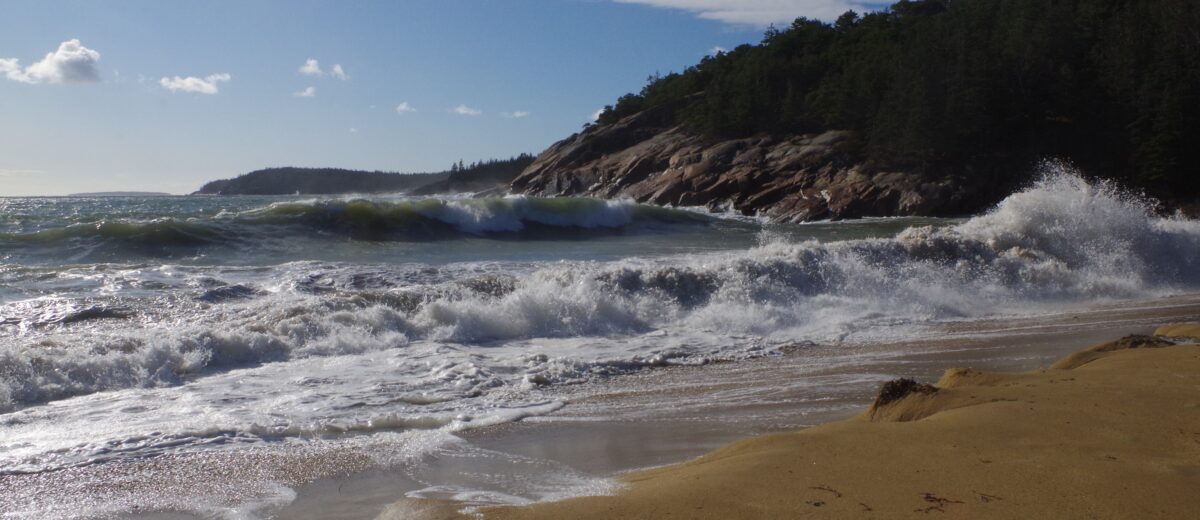Hurricanes get a lot of attention, but there’s another kind of storm that is more common and damaging for Acadia and other parks in the region: Nor’easters.
Like a hurricane, Nor’easters occur in the North Atlantic Ocean, are characterized by strong winds and large waves, are typically accompanied by heavy precipitation, and can cause substantial coastal erosion. In a typical decade, only one or two hurricanes or remnant storms hit the region, but several Nor’easters occur each year. Winter storms including Nor’easters have become both more frequent and more intense in the last 30 years.
Isaac Ginis, a professor of oceanography at the University of Rhode Island, studies the interaction between Atlantic storms, ocean waves, high winds, and the sea-air surface layers. His research has helped improve forecasts of hurricane intensity. From 2019-2024, he and doctoral student Deb Crowley developed models of storm surge and coastal flooding for Acadia National Park, Boston Harbor Islands National Recreation Area, and Cape Cod National Seashore. Their research findings, in turn, informed visualizations developed by landscape architect Peter Stempel of Penn State University, who works at the intersection of art, design, and science.
Schoodic Institute’s role was to evaluate the research results, visualization tools, and their potential uses and misuses, and work with each park to create interpretation and education products and programs to enhance understanding of storm surge and coastal flooding, including a short video.
Our work with the parks and the research team also informed development of guidance for communicating about sea level rise, storms, and climate change in parks, published in the Summer 2024 issue of Park Science. The research team has also published their final report.
Our collaboration with University of Rhode Island and Penn State has continued with funding from NOAA Effects of Sea Level Rise program. Tracking “king tides” is part of this effort. These extra-high tides, which occur during certain times of the year, provide a glimpse into a future with higher sea levels, and help us imagine the damage that could result if a hurricane or nor’easter storm coincides with high tide.
